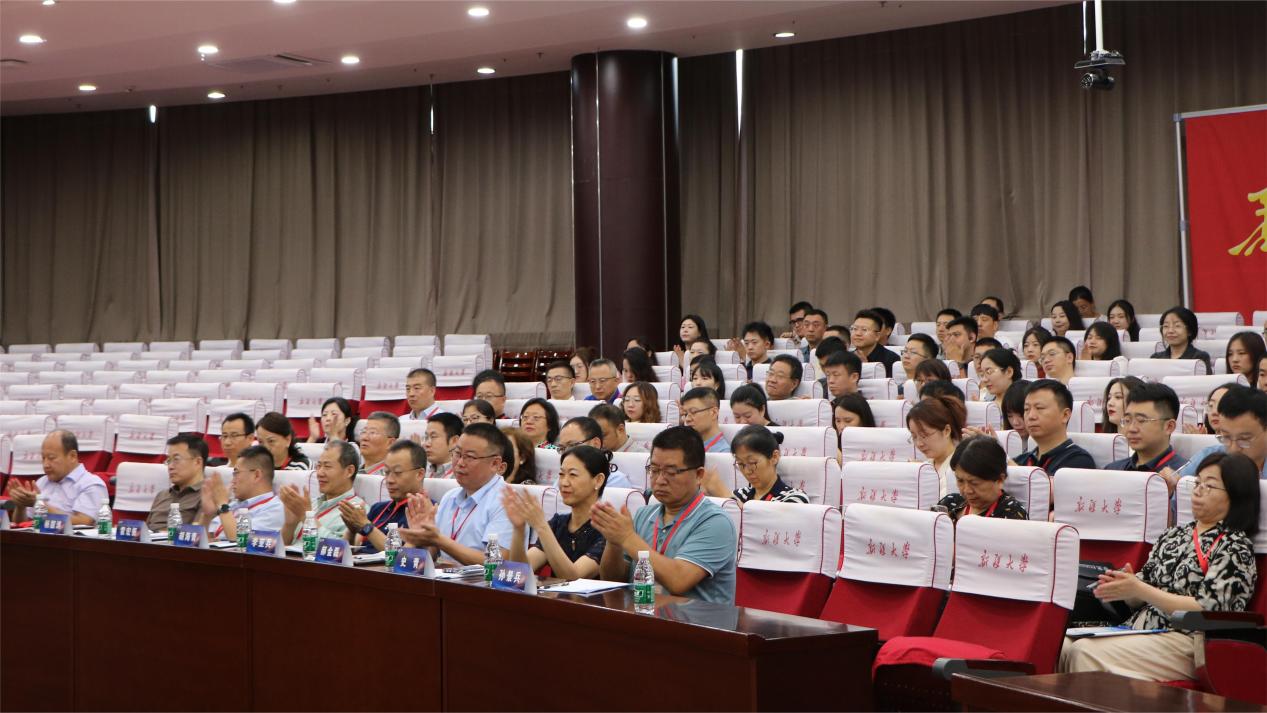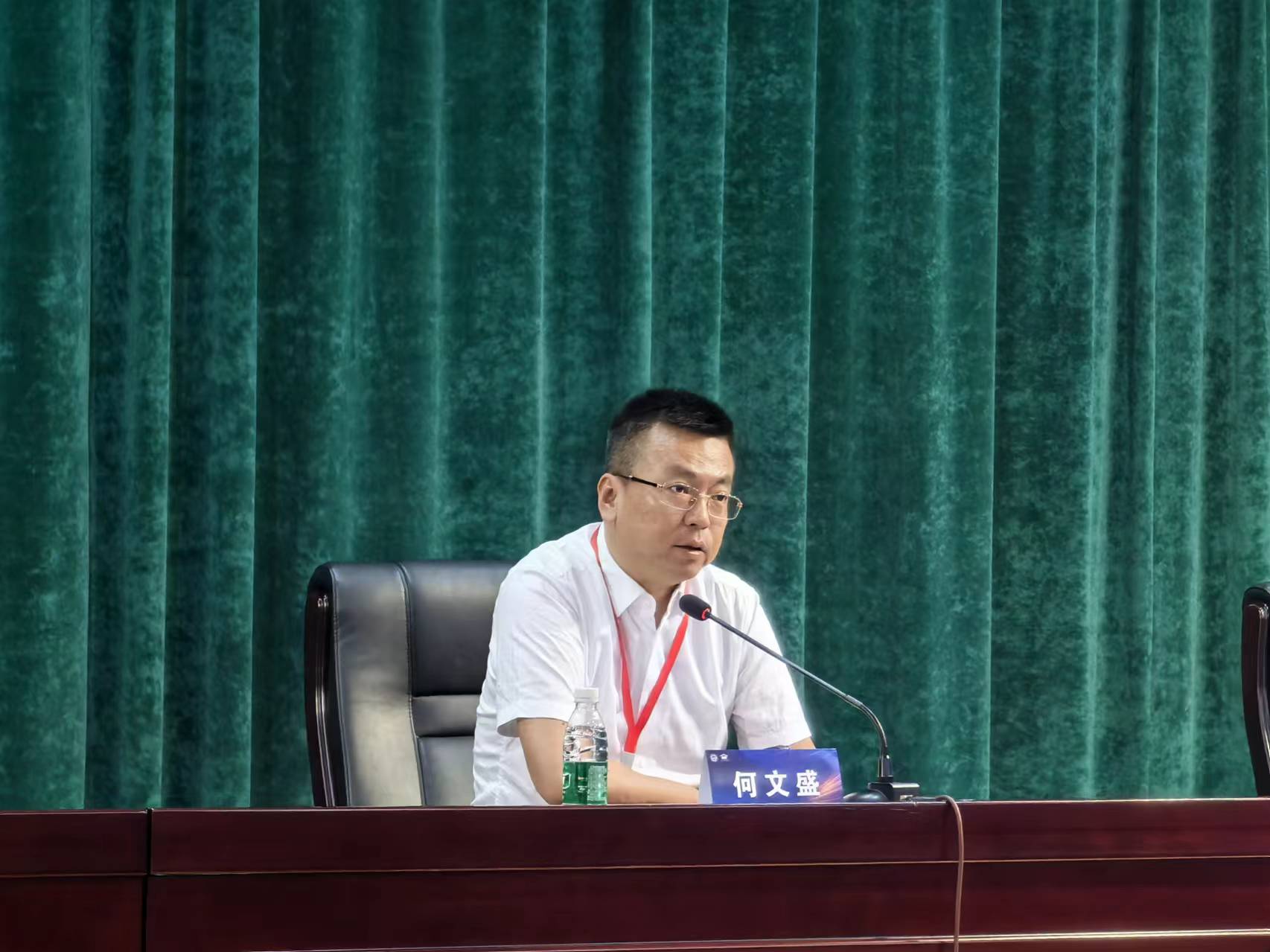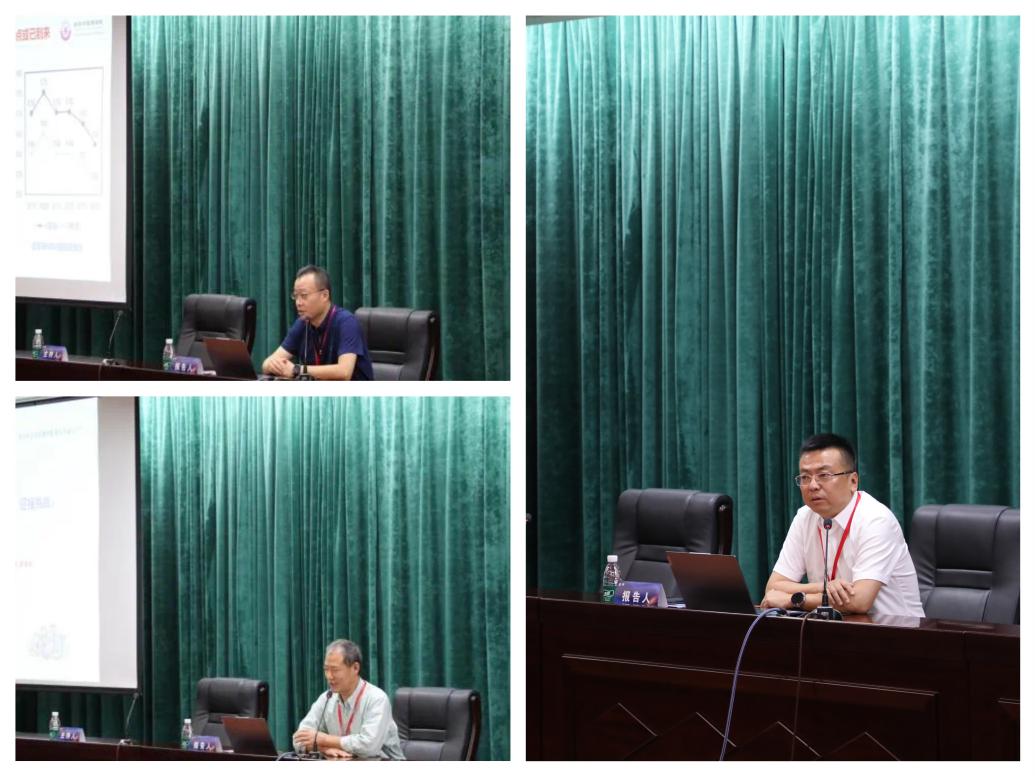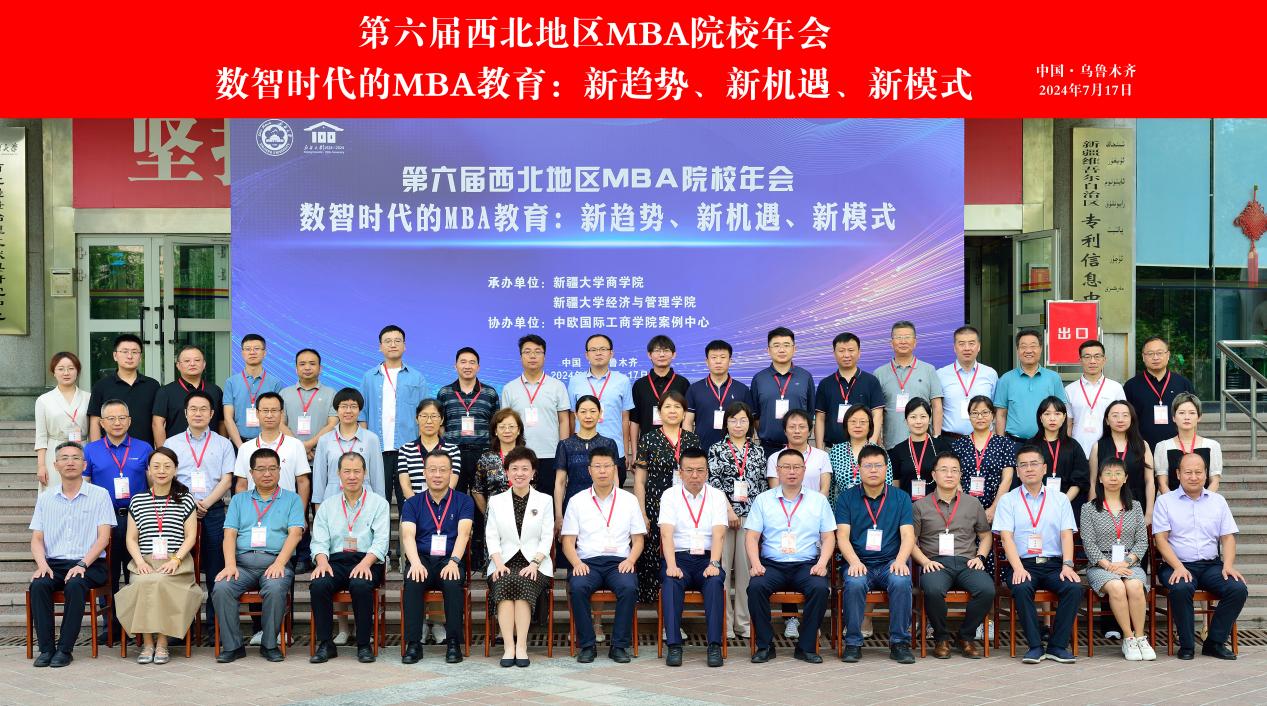News
LUSM Delegation Attended the 2024 Annual Conference for MBA Education of Northwest China Institutions
On July 17, the 6th Annual Conference for MBA Education of Northwest China Institutions, hosted by the Business School and School of Economics and Management of Xinjiang University and co-organized by the Case Center of China Europe International Business School, was held at the Honghu Campus of Xinjiang University, with the theme of “MBA Education in the Digital and Intelligent Era: New Trends, New Opportunities, and New Models”. Wang Liejun, member of CPC Committee and Vice President of Xinjiang University, Wang Ping, Director of the Secretariat Office of The China National MBA Education Supervisory Committee (hereafter “the Committee”), He Wensheng, member of the Committee and Dean of LUSM, colleges leaders, faculty members and student representatives of nearly 30 MBA institutions in Northwest China, as well as faculty and staff representatives of the Professional Degree Education Center of LUSM participated in the meeting.

At the opening ceremony, Wang Liejun, representing Xinjiang University, delivered a speech introducing the development and construction of Xinjiang University and the School of Business. He emphasized that the university would capitalize on hosting this annual conference to prioritize capacity education for the digital age, foster collaboration among diverse stakeholders, and harness digital and intelligent technologies to transform MBA education, thereby collectively advancing its development.
In her speech, Wang Ping emphasized that the latest wave of technological revolution and industrial transformation has significantly altered the requirements for business professionals in both economic and social domains. This presents a substantial challenge to business education, particularly MBA programs. It is imperative for MBA education to be closely aligned with scientific and technological innovation, drawing from interdisciplinary studies and new paradigms. The new accreditation system for high-quality MBA education embraces innovative educational concepts, and it is imperative for Northwest MBA institutions to proactively align with the CAMEA accreditation system and establish a consensus on high-quality development.
In the opening speech, Dean He Wensheng highlighted the areas where MBA institutions in Northwest China need improvement: AI digital empowerment, faculty team building, course development and innovation efficiency, industrial and educational integration, training in innovative thinking, the practical application of theoretical knowledge, students’ problem-solving abilities in real-world scenarios, and international exchange and cooperation. Northwest MBA institutions should pay attention to the new trends and strive to integrate new content, courses, concepts, and elements to MBA education, thus forming a common MBA education community.

He Wensheng, Dean of LUSM, Lei Hongzhen, Dean of the School of International Business School of Shaanxi Normal University, Hu Haiqing, Dean of the School of Economics and Management, Xi’an University of Technology, Li Yabing, Dean of the School of Economics and Management, Lanzhou University of Technology, Hao Jinlei, Dean of the School of Business Administration, Lanzhou University of Finance and Economics, Shi Qing, Associate Dean of the School of Business Administration, Xinjiang University of Finance and Economics, Lv Yanqin, Dean of the School of Business, Xinjiang University, and Chen Shimin, Director of the Case Study Center of CEIBS delivered keynote speeches respectively.

Zhang Ruoyong, Deputy Director of Professional Degree Education Center of LUSM, called together the participating institutions to take part in a symposium. The delegates discussed MBA talent cultivation topics such as management mode, degree program construction, enrollment quality, curriculum teaching, professional practice, case development, professional competitions, dissertation guidance, and mentor team building.
In the digital era, this annual conference serves as a platform for communication and collaboration among MBA institutions in Northwest China. It is imperative for MBA institutions to align their development objectives and talent cultivation goals with regional economic, technological, and cultural resources. By leveraging local institutions’ exceptional disciplines, they can uncover core competitive advantages and foster overall development.






